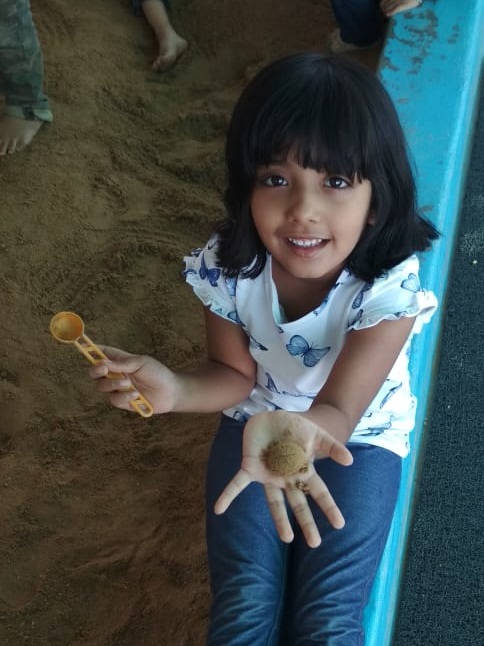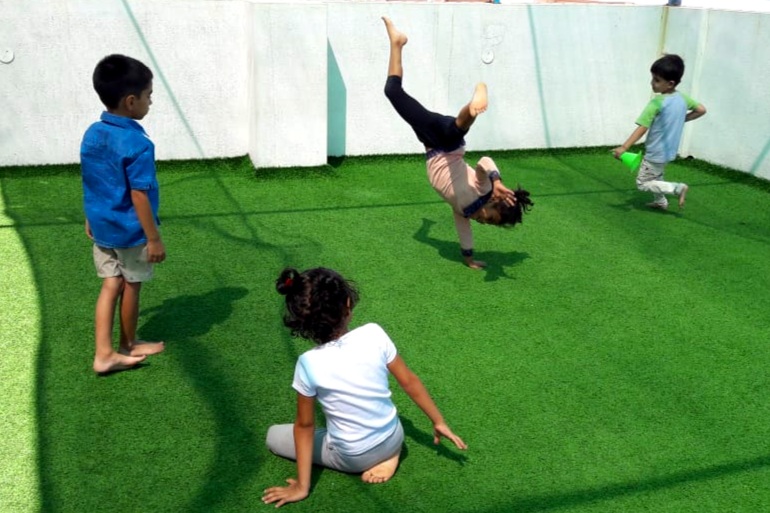An immediate difference most people notice between conventional kindergartens and Montessori environments is the absence of fantasy in Montessori.
When young children are building their own models of the world based on their formative experiences, is it fair to offer them things that are inconsistent with reality? Rather than providing children with amusing but fake tools, we prefer to offer them the real thing (real mops, brooms, knives, glasses, and so on).
However, this does not mean that Montessori children are discouraged from pretend play. Very often, children enjoy experimenting in different ways: both inside the environment (with the real tools of practical life), and outdoors (with that all-time favourite - sand). But this natural inclination to pretend should not be mistaken for a love of fantasy. Dr Montessori believed that children revealed their unmet desires during pretend play -- no wonder then that children love "making" yummy food in the sand pit!



